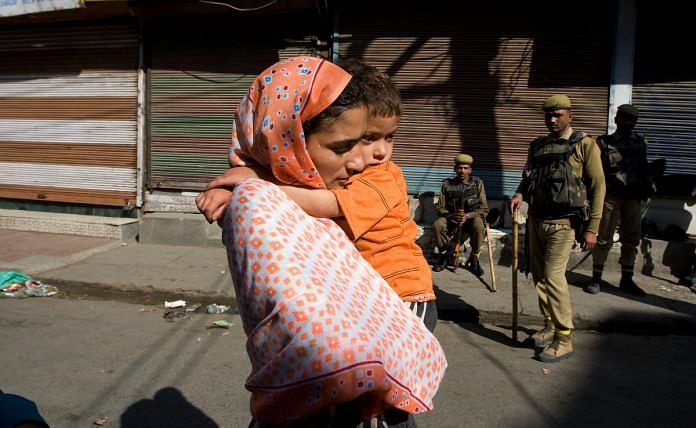Former diplomat says it’s an embarrassment for India and brownie points for Pakistan but no value internationally.
New Delhi: The 49-page report by the Office of the United Nations High Commissioner for Human Rights (OHCHR) has called on authorities in India and Pakistan to “fully respect the right of self-determination of the people of Kashmir as protected under international law”.
In the Simla Agreement of 1972, both India and Pakistan had agreed that issues pertaining to Kashmir would be resolved only bilaterally. No UN resolution on Kashmir has explicitly invoked the right to self-determination for the people of the state but the report released this week brings back the reference in its last few pages.
The report is now with the United Nations Human Rights Council.
While the right to self-determination has been laid down in Article 1 of the UN Charter of 26 June, 1945, and can be read in conjunction with resolutions passed (as has been done by Pakistan), the resolutions have only ever mentioned the idea of a plebiscite, in 1948.
The Plebiscite Promise
In 1948, the United Nation Security Council set up a five-member commission for India and Pakistan. The commission passed resolution 47, which set three basic guidelines — Pakistan withdraw all regulars and irregulars from Kashmir; India reduce security forces to a bare minimum and a free and fair plebiscite be conducted in the state.
“The resolution laid down the procedure and guidelines on how to conduct a plebiscite in the state,” an expert on India-Pakistan relations told the ThePrint.
“Moreover, since Pakistan refused to comply with the guidelines and did not vacate occupied Kashmir, the resolution was not implemented.”
Resolution 47 is one of the oldest to have never been implemented. It is still in the UN books. The only remaining vestiges of this resolution are three offices of the United Nations Military Observer Group — at Jammu and Srinagar in India, and Islamabad in Pakistan.
“Neither the UNSC nor the UNGA have ever passed a resolution on the India-Pakistan conflict ever since. Yes, UNHRC did issue a different set of guidelines. But those aren’t mandatory. Even in 1996, Pakistan failed to indict India for human rights violations in UNHRC,” the expert said.
Author of Unravelling the Kashmir Knot, Aman Hirongani, earlier also stated that “not only was New Delhi’s ‘pledge’ of holding the plebiscite in J&K unconstitutional and not binding on India, the UNSC resolutions for holding the plebiscite were themselves without jurisdiction and in violation of the UN Charter.”
The Aftermath of 1965
Post the Indo-Pakistan 1965 war, the scenario altered even further. India and Pakistan signed the Tashkent Agreement moderated by Aleksey Kosygin, the then President of the USSR. The agreement, however, only stated that ‘India and Pakistan had reiterated their earlier stand on the issue.’
The agreement was even criticised for not containing a ‘no-war’ pact.
After 1971, came about the Simla Agreement. “Here it was effectively established that the Kashmir issue will be resolved by bilateral conversations between India and Pakistan. This was a major success for Indira Gandhi’s diplomacy as it tried to kill the international dimension the issue had taken,” a senior diplomat told ThePrint.
All agreements signed by the two countries have since taken the same stand. Even though Pakistan keeps mentioning a plebiscite, it has never officially raised the issue in UNGA or UNSC again.
Self-determination and the possible consequences
A former diplomat told ThePrint that the report would have no bearing on India. “It is a report by an organ of the UNHRC, it will hardly make any difference as it is not imposable,” the ex-diplomat said.
A senior diplomat said, “It doesn’t matter much too any side — yes, it is an embarrassment for India and brownie points for Pakistan. But it has no value internationally and can’t be enforced. There is no other implication and India has already rejected the report.”
“Even Pakistan hasn’t raised the issue in the UN since 1948. It is because they fear that new resolution may tilt things in favour of India. They no longer have the international standing, at present, or the support to make a move like this,” the diplomat added.



